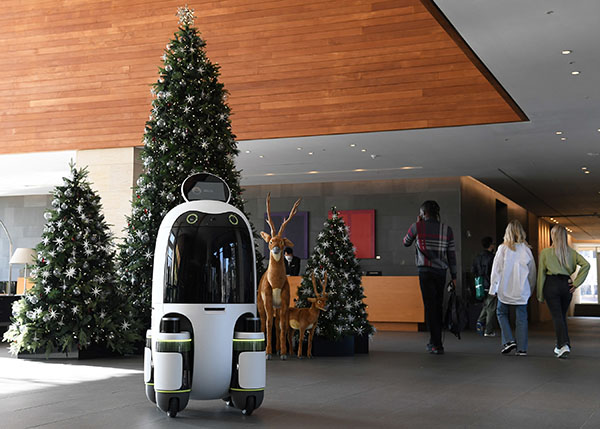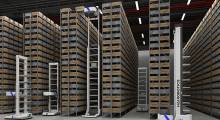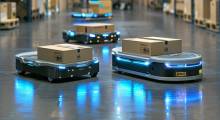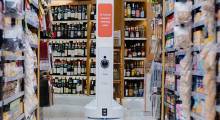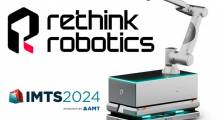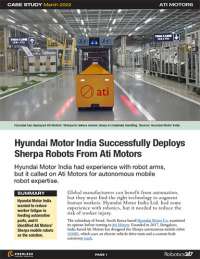South Korea, already one of the most robot-friendly countries in the world, is getting more service robots. Hyundai Motor Group last week said it has started two pilot programs using autonomous robots based on its Plug & Drive, or PnD, modular platform. They will be conducting delivery services at a hotel and a residential-commercial complex located in the outskirts of Seoul.
The delivery robot consists of a storage unit integrated on top of a PnD driving unit. In addition to the loading box used to deliver items, a connected screen displays information for customers.
“PnD-based delivery robots allow quicker delivery times with improved safety through the use of autonomous driving technology, including fast obstacle-avoidance capabilities,” stated Dong Jin Hyun, head of the robotics lab at Hyundai Motor Group. “We plan to keep upgrading mobility services, convenience, safety and affordability for customers through our pilot programs.”
Robot to deliver with dexterity
First shown at CES 2022, Hyundai's PnD modular platform is an all-in-one, single wheel unit that combines intelligent steering, braking, in-wheel electric drive, and suspension hardware. It includes a steering actuator for “360-degree, holonomic rotation,” said the company.
Lidar and cameras help the delivery robot move autonomously, and its storage unit is integrated, noted Hyundai.
In addition, the robot can move between floors of the Rolling Hills Hotel by itself by communicating directly with elevators. Hyundai said its deep learning-based algorithms enable robots to recognize people.
By adding the autonomous driving capability, the PnD-based robot can find the optimal route within the area to deliver packages to recipients, according to Hyundai.
The system can recognize and avoid fixed and moving objects and drive smoothly, delivering food, drinks, and amenities as quickly as human staffers, it said. (See video below.)
Based on how the hotel project goes, Hyundai plans to expand the usage and operating hours, as well as the number of robots. The company also plans to pilot outdoor delivery services at a residential and commercial complex with Woowa Brothers.
Hyundai Mobis to show concept vehicles at CES
Hyundai Mobis has been applying the Korean automaker's mobility expertise to developing logistics and collaborative robots. Hyundai Motor Co. also recently announced that it is working with IonQ on quantum computing and machine vision algorithms for autonomous vehicles.
“IonQ’s continued work with Hyundai strengthens both our beliefs that quantum will drive the next phase of innovations throughout the automotive industry,” said Jungsang Kim, co-founder and chief technology officer of IonQ.
“Autonomous vehicles are still in their infancy, yet the quantum-derived algorithms we’re testing today have the potential to shape the commerciality, efficiency and safety of such systems,” he said.
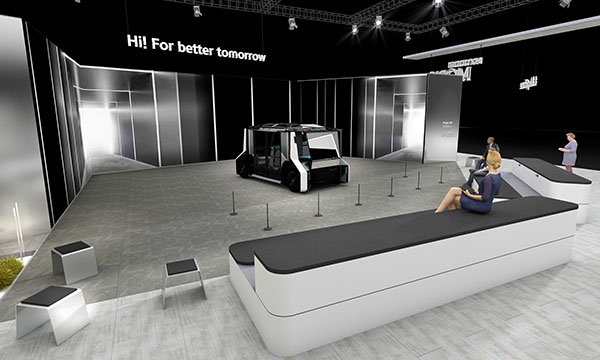
At CES 2023, Hyundai Mobis plans to show purpose-built vehicle (PBV) concept models M.Vision TO and M.Vision HI for the first time. “TO” refers to going toward the future, while “HI” refers to a humanity-oriented driving experience, said the company.
M.Vision TO is an electric self-driving vehicle featuring cameras, lidar and radar sensors, e-corner modules for independent driving and steering, and mixed reality displays integrated into the vehicle's four pillars. M.Vision HI is a PBV designed for leisure, relaxation, and outdoor activities.
Hyundai Mobis will also be showcasing 19 of its newly developed, mass-producible mobility and display technologies in Las Vegas next month, including the MVICS 4.0 future cockpit integrated system, LED grille lighting, and AR-HUD hologram.
Article topics
Email Sign Up

